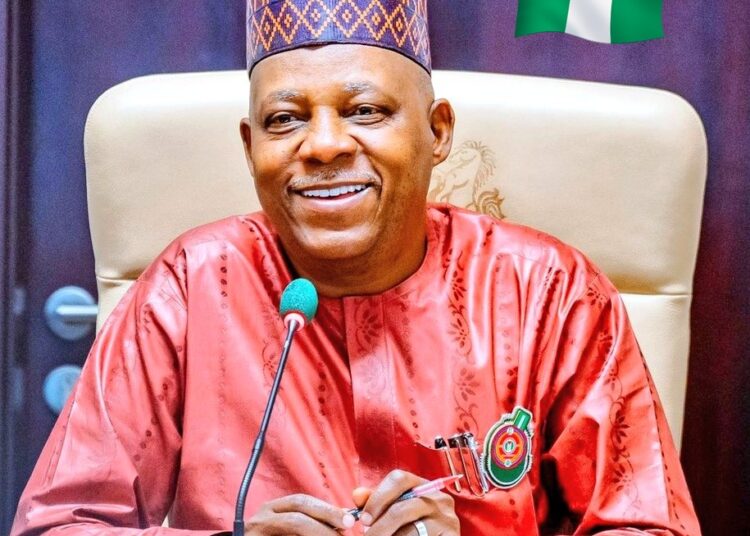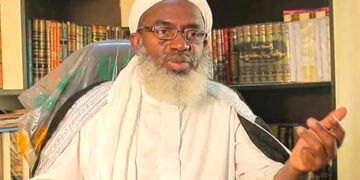Vice President Kashim Shettima has said the courageous and unavoidable reforms being undertaken by President Bola Ahmed Tinubu’s administration, which are currently fixing Nigeria’s structural weaknesses, are proof of the power of political will in economic policy.
He called on African nations to embrace the knowledge economy, saying it is a bridge to transform the continent’s economic growth and development through productivity beyond outdated explanations.
The vice president who stated this yesterday in Abuja during the opening session of the 66th Annual Conference of the Nigerian Economic Society (NES) noted that while Nigeria is not immune to the economic morass Africa has long been enmeshed in, the nation’s comforting prospect is that it currently has a President with a listening ear.
“Nigeria is, of course, not exempt from Africa’s economic tragedies. But our silver lining is the listening ear of President Bola Ahmed Tinubu. Under his leadership, this administration has embarked on bold and inevitable reforms to address structural weaknesses that others before us only paid lip service to.
“These reforms testify to the power of political will in economic policy. Their painful but necessary consequences remind us that a malignant disease can only be cured by painful surgery. The wounds are temporary, but the recovery is permanent,” he stated in a statement by his spokesman, Stanley Nkwocha.
Shettima stressed the need for African nations to abandon the old-fashioned approach to their economies and embrace structural transformation to address human capital challenges and reverse unemployment.
He said, “We live in a world where a random citizen in Daura can outsource his services to a corporation in Dallas without seeing the inside of a plane or leaving his bedroom. But to catch up with this changing world, Africa must embrace structural transformation that reinvents its human capital and reverses unemployment.
“Poverty must be confronted head-on for the promise of this continent to be realised in the lives of our people. There is no justification for the low per capita income that afflicts our nations amidst the resources at our disposal,” he said.
Shettima observed that though “geopolitical conflicts, trade protectionism, supply chain disruptions, the energy transition, and the disruptive rise of artificial intelligence” may all seem like threats to the continent’s economy, they are opportunities in disguise.
“They all paint a gloomy outlook. But each threat is also an opportunity in disguise. This is why a society such as yours exists: to light the path of a continent even in the darkest night,” he explained, just as he pointed out it is the mandate that the Annual Conference of the Nigerian Economic Society has been given “to find new pathways to solutions,” while the nation awaits the recommendations,” he said.
The vice president noted while the Tinubu administration did not claim the ongoing reforms would be easy, it has always acknowledged the inflationary impact of the reforms as well as the “spillovers from global crises into our economy,” which explains why President Tinubu “has remained committed to investment-friendly measures and social protection programmes to cushion the vulnerable.
Earlier, the minister of Budget and Economic Planning, Abubakar Bagudu, applauded Shettima’s contributions in the realisation of the economic reforms of the administration of President Tinubu.
Bagudu assured the NES that it would be fully integrated into all of the ministry’s programmes, especially preparing and implementing the development plan and the recently approved Renewed Hope Ward Development Programme.
Also, the minister of Livestock Development, Alhaji Idi Mukhtar Maiha, presented the potential in Nigeria’s livestock sector, estimated at several billions of dollars, offering opportunities for economic diversification.
The minister expressed readiness to partner with the NES to brainstorm on the “brilliant ideas” needed to implement President Bola Tinubu’s Renewed Hope Agenda for the livestock sector, which he described as “the next crude oil.”
For his part, the president of the NES, Prof. Adeola Adenikinju, reiterated the society’s commitment to collaborating with the Tinubu administration to actualise the goal of genuine economic transformation and national development.
He said the NES under his leadership has undertaken reforms aimed at repositioning the body to act as “a bridge between research and policy, a centre for mentoring the next generation of economists, and a trusted partner in Nigeria’s pursuit of sustainable development and Africa’s transformation.”





